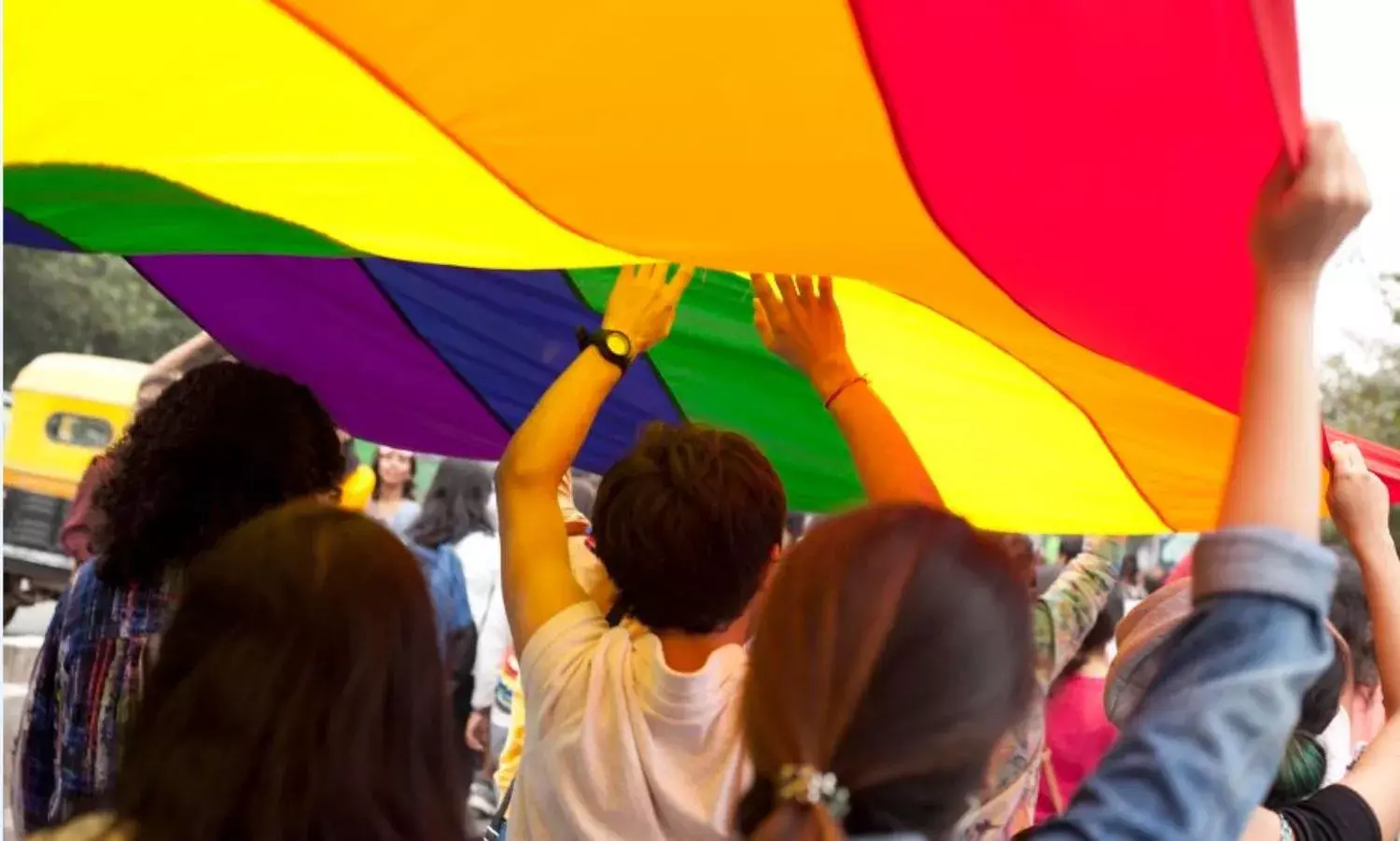Indians Celebrate as Apex Court Decriminalises Homosexuality
“Court won’t wait for majoritarian government to uphold fundamental rights”;

NEW DELHI: A five-judge bench headed by Chief Justice Dipak Misra delivered a historic judgement today which read down Section 377 of the Indian Penal Code, legalising same-sex relations between consenting adults. The judges said that only Constitutional morality and not social morality could be allowed to permeate the rule of law, and that “any discrimination on the basis of sexual orientation amounts to a violation of fundamental rights”.
The verdict was met with jubilation across the country, with gay rights activists erupting in celebration right outside the courtroom.
Later in the evening, the LGBTQ community led a march around Delhi's Jantar Mantar, gathering in large numbers to celebrate its newfound legal freedom.
At the Lalit Hotel in New Delhi, grand celebrations were led by hotelier and LGBTQ activist Keshav Suri.
In Chennai, the LGBTQ community reportedly celebrated by distributing chocolates.
Young citizens emerged in support of the verdict, leading small processions in colleges and other public places, and all over social media. According to 16 year-old Rishi from Delhi, the judgement is “a monumental step towards an inclusive society”. A student of class 11, Rishi believes the judgement brings new hope to young school-going people like him, who struggle because of the taboo around their sexuality.
“School is usually a horrible experience for people like me because of how intolerant people here are of anything that is not normative. I have been called all sorts of names because of this. Now that the court has decriminalised homosexuality, I hope the views of my peers will change… Maybe acceptance from the court will translate into acceptance among the youth,” he said.
Shashwat Shukla, a 20 year-old student at the Narsee Monjee Institute of Management Studies in Mumbai, said, “While we have won in the courts, the fight should not end there. In our classrooms, our homes, our social circles – we must fight to normalise the LGBTQ+ community, promote inclusivity in every institution and stand up against any bigoted people who make fun of this,” said, adding, “Everyone needs to have an open mind, just like the highest court in the country displayed today.”
According to Shimona Sharma, a student at Delhi University, “This is a big victory for all of us, and I hope it helps more people come out of the closet and also change the way society perceives homosexual relationships.” 20-year-old Navika Kapoor called the decision “a long-overdue milestone that is meant to be celebrated.”
Jack Harrison-Quintana, activist and director of Grindr for Equality, applauded the striking-off of Section 377, saying the law was “historically put in place by the British to control the bodies of their colonial subjects” and that the apex court’s decision would “reverberate all around the Commonwealth from Botswana to Singapore, where activists are still struggling to reclaim their rights in the wake of the British imperial project.”
“This is a symbolic judgement and we have a long road ahead. As a society, we need to reflect and bring about attitudinal change. It’s important to understand what the judgement says: that two consenting adults can make personal choices irrespective of gender, caste, religion. They must be allowed that choice,” said Hansal Mehta in a television interview.
Mehta directed the movie Aligarh, which recounts the harassment of gay Aligarh Muslim University professor Ramchandra Siras, leading to his suicide in 2010.
Public figures and politicians also expressed their support for the Supreme Court’s decision. Congress MP Shashi Tharoor said the decision vindicated his stand on Section 377 and upheld it on the same grounds of privacy, dignity and constitutional freedoms. Haryana MLA Randeep Singh Surjewala called the decision momentous, saying it had put an end to “an age-old colonial law, which was an anachronism in today’s times”.
“Law is now in sync with love,” tweeted Congress spokesperson Jaiveer Shergill. BJP national spokesperson Gaurav Bhatia, who has worked in advocation of decriminalisation of homosexuality in the past, also tweeted in support of the judgement.
The United Nations in a statement also supported the verdict, calling it the “first step towards guaranteeing the full range of fundamental rights to LGBTI persons… The focus must now be on ensuring access to justice, including remedy; effective investigations of acts of violence and discrimination; and effective access to economic, social and cultural rights.”
The verdict also met with some opposition, with an alliance of churches and the Trust of God Ministries group coming together to call Section 377 a rightful law that prohibited “crimes against the order of nature”. Their counsel Manoj George had argued in court that the question of decriminalisation was for Parliament to settle, to which Justice Rohinton Nariman responded that the court was “not going to wait for a majoritarian government to protect the fundamental rights of citizens”.
BJP Rajya Sabha MP Subramanian Swamy expressed his displeasure at the verdict, saying that it "would give rise to increase in the number of HIV cases, gay bars, etc." Calling homosexuality a "genetic disorder", Swamy said the verdict of the Supreme Court could later be overturned by a seven-judge bench.
Meanwhile, the Rashtriya Swayamsewak Sangh took an ambiguous stand on the matter, saying that while homosexuality was not a crime, they could not approve of same-sex marriage, which "goes against nature".

